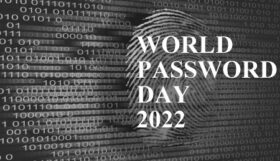Computer Misuse Will Get You Fired
More and more jobs involve the use of a computer. And working with a computer has its hazards just as a job driving a bus or cooking for a living does. African-Americans understand that sometimes we are judged more harshly than others in the workplace. So you need to beware of computer misuse on the job. These mistakes could get you fired and even destroy your career. Companies are extremely sensitive about their computers and networks. The least little thing could cost millions of dollars in data loss and man hours to repair the damage.
AACR Rule #10. You are always one click from destruction.
Lets look at the ten computer mistakes that will get you fired.
1) Using storage devices to transfer data. Transferring your employer’s corporate data back and forth to your home computer using a thumb drive or other storage device may seem harmless but you are asking for trouble. You could lose the drive containing sensitive information such as customer names and information or that of a business partner. You may unintentionally infect your company’s network with a virus you didn’t know you had. Its smart to keep your computer and the company’s computer separate. If you need to take information home or travel then ask for a company laptop and use a secure pass phrase and encryption in case it gets stolen in the airport or hotel. If it happens kiss that job goodbye.
2) Stay off social media! That means Facebook, BlackPlanet, Twitter, Instagram, shopping online on black Friday, March Madness all of it. Your boss could easily assume you are wasting company time and resources. And you know he will. You could also get involved in office gossip and accidentally expose company data, or voice an opinion best kept to yourself. Remember that the computer in the workplace is monitored. They told you that didn’t they? Whatever you do on it is their property. Hackers often use social media as a stepping stone to get into company networks or discover tidbits of information used to break into networks. You should be extremely suspicious of anyone asking for contacts or emails of other employees or someone sending you files or links. One click could put you on the street.
3) Using the wrong tone of voice. Black people will speak their mind. It’s not a good idea in the work place, in company emails or when dealing with customers. Some companies use chat tools, online bulletin boards and even intranet websites. Be professional. Damaging your employer’s reputation is bad and will definitely get you fired. You don’t want a customer or business partner complaining about rude or un-professional communications. Don’t say whats on your mind. Eliminate the slang and the attitude. One out of place phrase about a co-worker, your boss or your own dissatisfaction could be disastrous. A frivolous photo from the office party may damage co-worker relationships and cause other problems in the office. I’ve seen an email go off track and turn an office upside down.
4) Don’t use personal email for company business. Most companies will suffer a minor server outage every now and then. And yeah, it can really be a pain when it happens. But using your Gmail or Yahoo email for sending corporate email is bad idea. What if your email is hacked? Don’t think it can’t happen. Cybercriminals may target you to get at your company networks. It happens all the time. And don’t use the company email for your personal stuff. I told you that it is not your machine and your boss can easily get a hold of the email. Don’t send jokes, images or links through your company network. Any joke, no matter how harmless it may seem, will offend somebody. And you never know what that link will do once you click on it.
5) Sending encrypted personal information. Using encryption on the office computer! Really? You could be branded a corporate spy, fired and may find yourself unemployable in your chosen field. Especially if you work in a financial services institution or any place handling sensitive data. The security manager may believe you’re up to no good or sharing confidential data with others outside the company. Even if you’re not you may still be fired or at least under suspicion. Most bosses will fire you or even report the matter to the police as matter of caution. Do you need that headache?
6) Don’t load personal software on company computers. This includes laptops. No games or apps. You could accidentally install malware or viruses or a worm and get shown the door. In addition some software hog and wastes company resources. I already told you that its the company PC or laptop and, yes, they can monitor it remotely. The IT guys don’t have to be standing behind you to know you’re playing Candy Crush.
7) Security policy violations. Don’t share passwords. Sometimes they can be hard to remember so you may write it down on a Post-It note and stick it on your monitor or on the underside of the keyboard. All bad ideas. Don’t think for a second that all your co-workers are trustworthy. Don’t ask anyone to monitor your email either. Don’t forward information. That “reply to all” button has killed a few careers. Don’t share company files with an employee who doesn’t have permission. If they don’t have the password for a certain file then don’t let them use yours. Keep your job by sticking to the rules.
8) Downloading or streaming content. Streaming music, movies, YouTube or Skype is another bad idea. Your employer is paying for that bandwidth and will frown upon its mis-use. But people still do it and then get hammered for it.
9) Company Cellphones. Using the company cellphone as your own is not smart. Maybe your company is OK with it but its still their phone and so are the text messages and voice mails. Now they’re in your business. You can also make the mistake of going over the limit with minutes or downloading an infected app. If someone notices your bill is exceeding the limits you could have some explaining to do. My best advice is keep you phone and business separate from their business.
AACR Rule number #4, Your life has been digitized. Everything you say and do is recorded somewhere.
10) And it will be used to both support and ruin your career.
Now You Know







